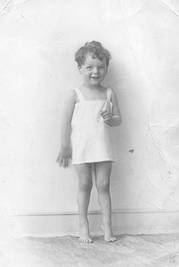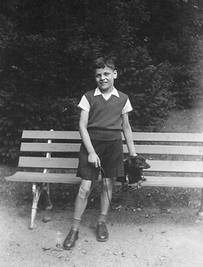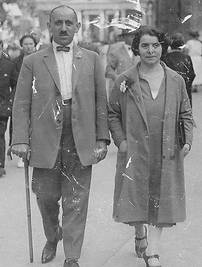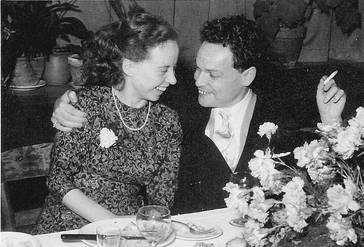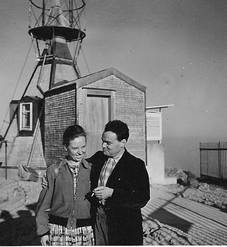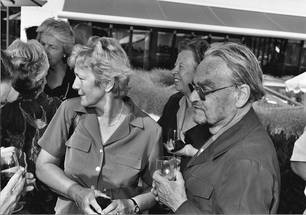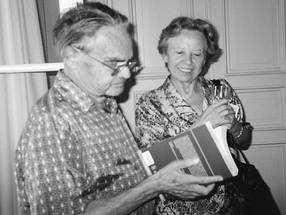Origins
Kurt Bergheimer was born on December 13th 1925 in Germany, living in Mannheim with his parents Josef and Emilie Bergheimer-Bloch. Kurt visited public schools there until the onset of the persecution of the German Jews prevented this. Beginning in 1937, Kurt attended the school that was opened for the children of the Jewish community. In October 1940 the Jewish population of Mannheim was deported to the concentration camp Gurs in the French Pyrenees.
Concentration camp and escape to Switzerland
First in the camp in Gurs and later in Rivesaltes, Kurt experienced all the horrors of life in a concentration camp: humiliation, hunger, filth, illness, violence and death. He was to have been recruited for the labor detail “Todt”. Thanks to his farseeing parents—who were subsequently on August 8th 1942 deported to Auschwitz—he was able to escape just in time from Rivesaltes.
Kurt Bergeheimer fled across France during the course of a month, assisted by the French Résistance and the OSE (Oeuvre de secours européen pour les enfants juifs), devoted to rescuing Jewish children, until he was able to reach Geneva in Switzerland.
In the labor camp for younger Jewish refugees “Davesco” in the Ticino Canton in southern Switzerland where Kurt was interned, he encountered a number of friends from his childhood, helping him to overcome some of the extreme loneliness he was experiencing. He felt accepted in this camp where, thanks to the sensitive camp administration, the thirst for learning of the young internees was understood.
Life in Switzerland
After Davesco was discontinued, Kurt was placed in another camp “Hasenberg” in the Canton of Aargau. From there he tried to pursue his education. After the War ended, the Jewish refugee agency VsjF helped Kurt to attend a business school in Zürich that he was able to successfully complete even though his school education had been disrupted by the War.
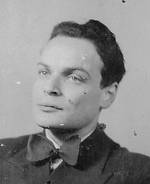
- Kurt in 1953
At the end of the War, Kurt was seriously ill; after a long hospitalization in Zürich, Kurt found a home with Berta Bigler, an unmarried teacher in Wabern, Canton of Berne. In 1953 this courageous and warmhearted woman adopted him. After two attempts and thanks to the support of friends, fellow students, university professors and even the Federal Counselor Max Weber, a personal friend of his adoptive mother, Kurt was granted Swiss citizenship.
Kurt Bergheimer, under the adoptive name Kurt Bigler, was able to receive the Swiss high school degree “Maturity” in order to be able to attend university. He was awarded a doctorate in history and German in 1954. Subsequently he successfully completed high school teacher training in Berne and was hired to teach for the first time in a secondary school in Ins, Canton Berne. His communication skills, friendliness and liveliness quickly brought him recognition. He was elected to represent the Social democratic Party in the community council of Ins as well as in the regional court of Erlach—two developments which always astonished Kurt: a Jewish refugee and member of the Social democratic Party could make a political career in a Bernese community composed of farmers, merchants and craftspeople!
Six years after marrying Margrith Eggenberger, a young attorney from the Canton of St. Gallen, Kurt was elected in 1965 to the teacher-training institute in Rorschach where he taught German, history and French until his retirement in 1990. Kurt was a gifted pedagogue who not only taught his students factual learning but also imparted a very high ethical and moral sense of community as well as tolerance and mutual understanding. As a result, throughout his life, he was always experiencing expressions of friendship from his former students. In later life, Kurt worked in Lausanne where his wife worked as a Federal Judge, as an editor of the publication of the Swiss organization for Alcoholism and other Drug-related issues, until his last serious illness in 2002.
The end of an eventful and intense life
Kurt Bigler entered the university hospital in Lausanne on June 6th 2007 for surgery. After two more operations and a serious infection, his previously strong lust for life was exhausted. He was not able to recover and left this world in the night of the 17th-18th July 2007 with a heartfelt and peaceful smile. His life had in the previous over eight decades given him both beautiful hours, days and weeks as well as pain and many dark moments.
Text prepared by: Dr. iur. Margrith Bigler - Eggenberger, 2008
